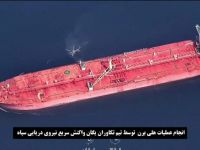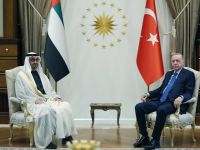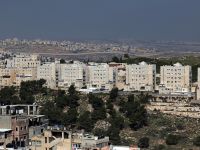Several countries have aspired to the title of “Hong Kong of the Middle East,” but possibly only one has been deserving of the honor — Bahrain. Indeed, just as the once-British colony of Hong Kong remains a beacon as a Western-style economy in China-dominated Asia, the also once-British colony of Bahrain has proven a liberal business bastion in the conservative landscape of the Arab Gulf.
And, just as Hong Kong remains a political anomaly in China, Bahrain is coming to fulfill a similar role in its region. On February 14, the country’s young Emir, Sheikh Hamad bin Isa Al-Khalifa, finally carried through on a promise of political reform, by initiating a national referendum on whether Bahrain should be transformed into a constitutional monarchy. When the results were announced it became apparent that more than 98 percent of the 90 percent of Bahrainis who had voted, supported the change in the country’s national charter, which includes the creation of an elected lower chamber of parliament and an independent judiciary.
Furthermore, under the sweeping reforms, Bahraini women will be the first in the Arab Gulf region to be allowed both to vote and stand for parliament. The government will also abolish the State Security Court and special security laws, which have been used over the past several years to crush political unrest.
Bahrain is a country that has had to reinvent itself more than once. Oil was discovered on its territory in 1902, but large-scale drilling commenced only in the 1930s. That was especially fortunate, because it was at that time that the world pearl market, on which the nation’s economy previously depended, was collapsing. Then, in the 1980s, as Bahrain’s own oil reserves fell dramatically, the country consolidated its status as a regional business hub—with a special emphasis on banking.
And banking remains the foundation stone of Bahrain’s economy. According to the Bahrain Monetary Agency, the assets of the 46 offshore banking units operating in Bahrain stood at $92.97 billion at the end of the fourth quarter of 2000. At the same period the year before, financial assets stood at $88.16. Assets of commercial banks climbed to 3.768 billion dinars ($9.99 billion) at end of December 2000, up from 3.724 billion dinars three months earlier and 3.745 billion dinars at the end of 1999.
To a large degree, the strength of Bahrain rests on the fact that it is an easy and comfortable place to work, and then relax, after business hours. Indeed, like Hong Kong, it provides a permissive respite in a generally Spartan environment. Every year, more than 2.5 million Saudis cross the 25-km King Fahd Causeway that has connected the two countries since 1987. They come because it is in Bahrain that they are able to partake in a variety of activities that are forbidden at home, such as alcohol drinking, attending a rock concert or sunbathing at a resort swimming pool. Unsurprisingly, Bahrain accounts for more than 50 percent of the region’s weekend hotel business.
Bahrain’s relaxed attitude toward visitors has been a feature of national life for many years. But in recent years, the upper echelons of the country’s leadership came to an understanding that, domestically, it would have to be translated into a more liberal political regime, if the country was going maintain its economic role. Sheikh Hamad, 49, is Bahrain’s second emir in the 28 years since it declared independence. The first emir was his father, Sheikh Isa bin Salman Al-Khalifah, who died March 1999 at age 66, after suffering a heart attack.
Sheikh Hamad inherited a complicated predicament. The majority of Bahrain’s 600,000 citizens is Shi'ite, many of whom reject the legitimacy of the Sunni regime and were critical of the royal family autocratic rule. An earlier state legislature had been disbanded in 1975 following a wave of internal political agitation. In December 1994, anti-government protests broke out after a Shi'ite official was arrested for distributing leaflets signed by 20,000 people demanding the restoration of the parliament. A year later, the authorities announced that they had uncovered a pro-Iranian plot to topple the government.
Hundreds of Shi’ite activists were jailed by the Security Court, which was established in 1995. Nearly 40 people were killed in riots, bombings and arsons between 1994 and 1999. The bitterness continued. Indeed, up until 10 days before the February 14 referendum, Shi’ite opposition elements were calling for a boycott, claiming that the promised reforms were meaningless while hundreds of political prisoners remained in jail.
Sheikh Hamad responded by taking the final step towards national reconciliation, releasing the final group of political prisoners and guaranteeing that the promised parliament would possess full lawmaking powers. Shi’ite leaders reciprocated by giving the referendum their blessing.
Economic reform preceded political liberalization. Bahrain’s government earlier committed itself to cutting tariffs on consumer goods and imported cars by 2003, two years ahead of a Gulf Cooperation Council (GCC) agreement to lower duties. Under this agreement, tariffs on goods entering the region will be gradually reduced until all GCC countries share common tariffs of 5.5-7.5 percent by March 2005. Resulting revenue losses in Bahrain are estimated at BD 14 million ($65 million) annually, which should be offset as lower tariffs stimulate economic activity.
The popularity of Bahrain in the region and the luxury hotels that dot its landscape belie the fact that it is among the poorest of the Gulf countries. For years its economy has been heavily reliant on grants from Saudi Arabia. For their part, Shiites argued that they were shut out of government work, faced with high unemployment and subjected to the rough treatment of a police force comprised of Pakistanis and other foreigners. .
Bahrain is the smallest oil producer in the Gulf today, producing roughly 40,000 barrels per day from its own fields and 120,000 bpd from an offshore field it shares with Saudi Arabia. Like most of its neighbors, it is taking steps to reduce its dependency on oil through economic diversification. Other than banking, it has invested in industries such as aluminum smelting, petrochemicals and ship repair. And its efforts have met with success. In recent years, Bahrain’s economy has outperformed those of its neighbors, and its economy is projected to grow by four percent this year, more than double its population growth rate of 1.78 percent.
Bahrain’s state coffers will likely receive a boost from this year’s oil income, which is predicted to reach BD 365 million ($968 million), up 43 percent on oil income in the 2000 budget. Petroleum products account for 61 percent of the country’s $3.3 billion in annual exports. In contrast, oil exports represented nearly 76 percent of total export earning in 1988 and 78 percent in 1990.
With Bahrain set to become the most democratic and politically liberated state in its neighborhood, many Bahrainis believe they soon will be living in the most progressive country in the Arab world. This, the government feels, will not go unnoticed in the international investment community. Sounder politics, the government hopes, will lead to a greater inflow of capital into Bahrain's already active money markets. — (Albawaba-MEBG)
© 2001 Mena Report (www.menareport.com)







